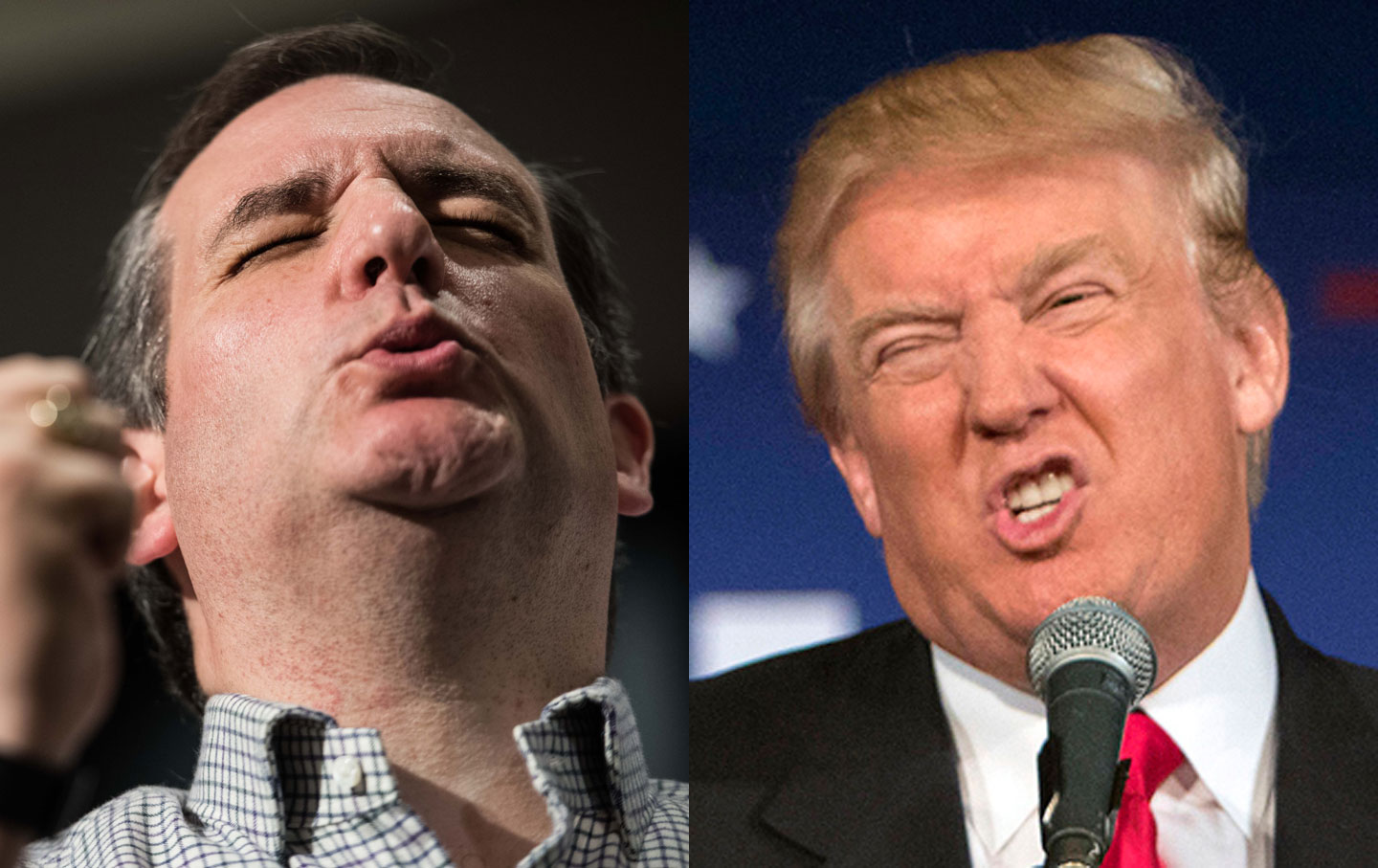Analysis: Trump Could Lose More Delegates Even as He Wins States
 Aldridk Gessa has been campaigning for months. She walked door to door in the dead of winter collecting signatures to get her name on the ballot. She’s handed out leaflets, spoken at local events, and appeared on regional TV and radio programs to make her pitch. Her goal: winning a place as a Republican delegate from Pennsylvania’s 2nd Congressional District so she can attend the Republican National Convention in July.
Aldridk Gessa has been campaigning for months. She walked door to door in the dead of winter collecting signatures to get her name on the ballot. She’s handed out leaflets, spoken at local events, and appeared on regional TV and radio programs to make her pitch. Her goal: winning a place as a Republican delegate from Pennsylvania’s 2nd Congressional District so she can attend the Republican National Convention in July.
Gessa is one of 163 people running for 54 delegate spots alongside presidential candidates on the April 26 Pennsylvania primary ballot. Most of the 2,472 Republican national delegates will be bound to support candidates on the first convention ballot according to the popular vote in their state. In contrast, Pennsylvania’s elected delegates will be free to vote for whomever they wish, making them especially important in this year’s tight race. They will make up about a third of the approximately 175 free agents who will travel to the convention in Cleveland, more than from any other state. “We actually might be those people who decide the next Republican nominee,” says Gessa, 44, a Ted Cruz supporter.
With three candidates still in the race, it’s possible front runner Donald Trump may fall short of the 1,237 delegates he needs to clinch the nomination outright. The last time none of the Republican candidates amassed enough committed delegates before the national convention was in 1976, when Ronald Reagan mounted a challenge to unseat incumbent President Gerald Ford. Just three weeks before that year’s gathering in Kansas City, Mo., Reagan shocked his fellow conservatives by recruiting moderate Pennsylvania Senator Richard Schweiker as his running mate. It was an unexpected gambit with a clear motive: wooing unbound delegates from Schweiker’s home state. Reagan ultimately failed, losing to Ford on the first ballot.
This year, Trump, Cruz, and John Kasich are going straight to the would-be delegates. In early April, when Cruz was in Harrisburg speaking at the Pennsylvania Leadership Conference, his staff organized a meet and greet for all delegate candidates supporting him in the state. It was a chance for Cruz to answer their questions and pose for pictures. Afterward, the campaign gave out a list of addresses and phone numbers for likely pro-Cruz voters in each Pennsylvania district.
The Kasich campaign, which is positioning itself to benefit if the national convention goes to multiple ballots, has been calling prospective delegates citing polls showing the Ohio governor is stronger than his rivals in November. “These are folks that are not bringing ideological baggage into the convention,” says Bob Walker, Kasich’s Pennsylvania state chairman, who’s been reaching out to delegate candidates to remind them that the Ohio governor grew up in McKees Rocks, outside Pittsburgh. “They’re coming in thinking about who they can elect in the fall.”
Publicly, most would-be delegates are staying neutral. That includes people such as Phil English, a former congressman from Erie who attended the 1976 convention as a College Republican. His preferred candidate, Wisconsin Governor Scott Walker, dropped out early in the race, and English hasn’t committed to anyone else. “I very strongly want to nominate a ticket that can beat a Clinton ticket,” he says. He’s been contacted by all three GOP campaigns, which offered face time with the candidates if he succeeds in winning a delegate berth. Trump’s team has been making the case that the mogul deserves the nomination if he arrives at the convention with a lead over Cruz and Kasich, English says, but he wants to see which candidate voters in his home district favor before he chooses a side: “I do think the results of the primary will weigh heavily on delegates.”
Each of Pennsylvania’s 18 congressional districts elects three delegates, who aren’t required to commit in advance to any candidate. Fourteen delegates chosen by a state party committee are required to cast their first ballot at the national convention for the candidate who wins the statewide vote, as are Pennsylvania’s top three GOP officials. Democratic delegates elected from congressional districts will be pledged to cast convention ballots based on the results of the popular vote, while state party leaders are designated as superdelegates and free to support anyone in the race.
Delegate candidates qualified by gathering at least 250 valid signatures from registered Republicans in mid-February, long before anyone knew Pennsylvania would matter in this presidential race. “This is different than other years,” says Bob Bozzuto, executive director of the Republican Party of Pennsylvania. “There are definitely folks who started the delegate process as Rick Santorum delegates, and they’ve now found someone else.”
Then there are committed supporters like Gessa, who’s been tweeting for months on behalf of Cruz—like her, a Cuban American. Gessa’s husband, Adam Lang, a GOP leader in the couple’s Philadelphia ward, ran unsuccessfully for a delegate slot in 2012. This year, four people are running in Gessa’s congressional district, and she’s determined to make the cut. Using the list the Cruz campaign provided, she’s been sending out her own campaign mailers reminding voters to choose a delegate when they go to the polls. (About 150,000 Republicans left the delegate lines on their ballots blank in 2012.) Gessa is planning a rally for April 23, the weekend before the primary. “A vote for me is a vote for Sen. Cruz,” reads a flier for the event. “Remember, conservatism works, conservatism wins!”
The bottom line: Pennsylvania will send the most free-agent delegates to the GOP convention, and campaigns are moving to line up support.
http://www.newsmax.com/Headline/trump-could-win-pennsylvania/2016/04/20/id/725004/
